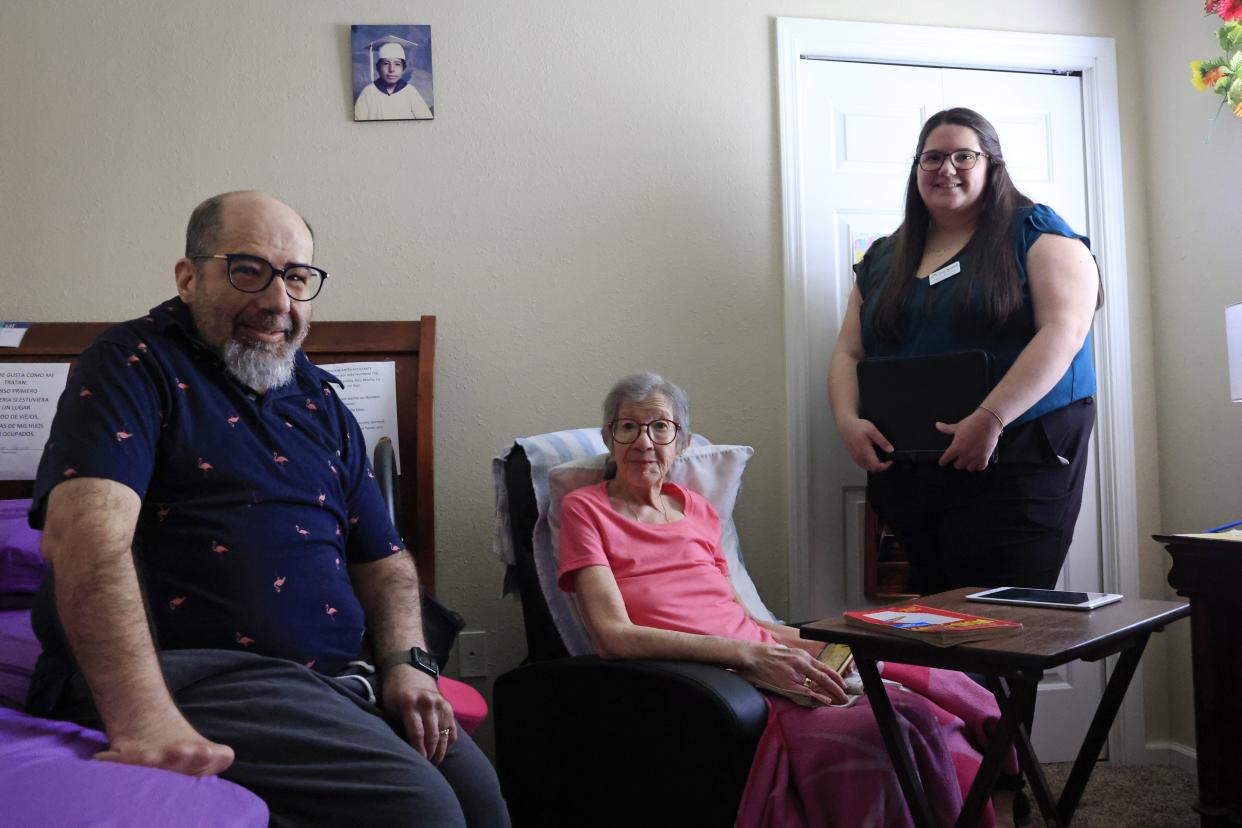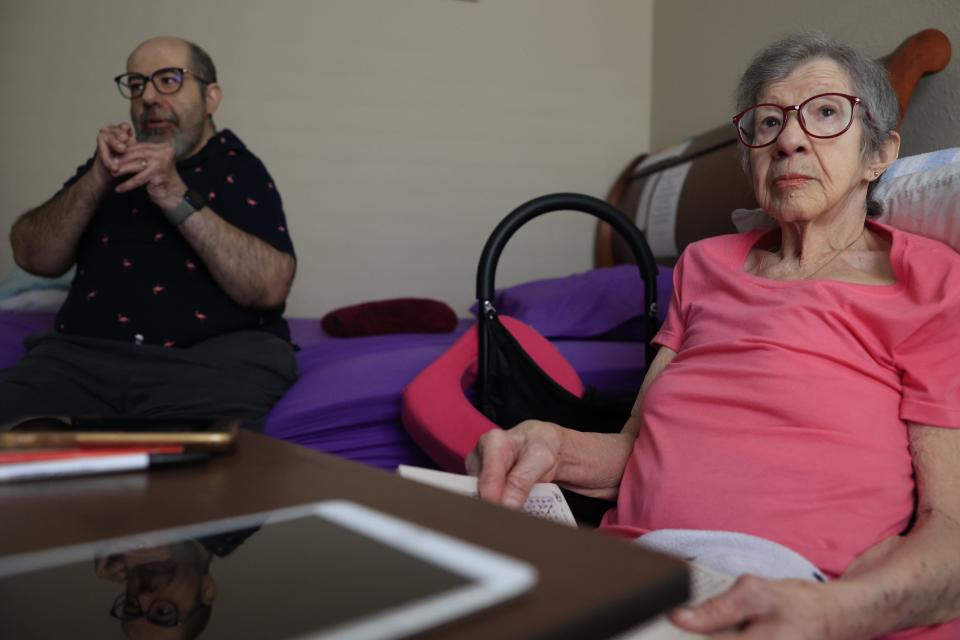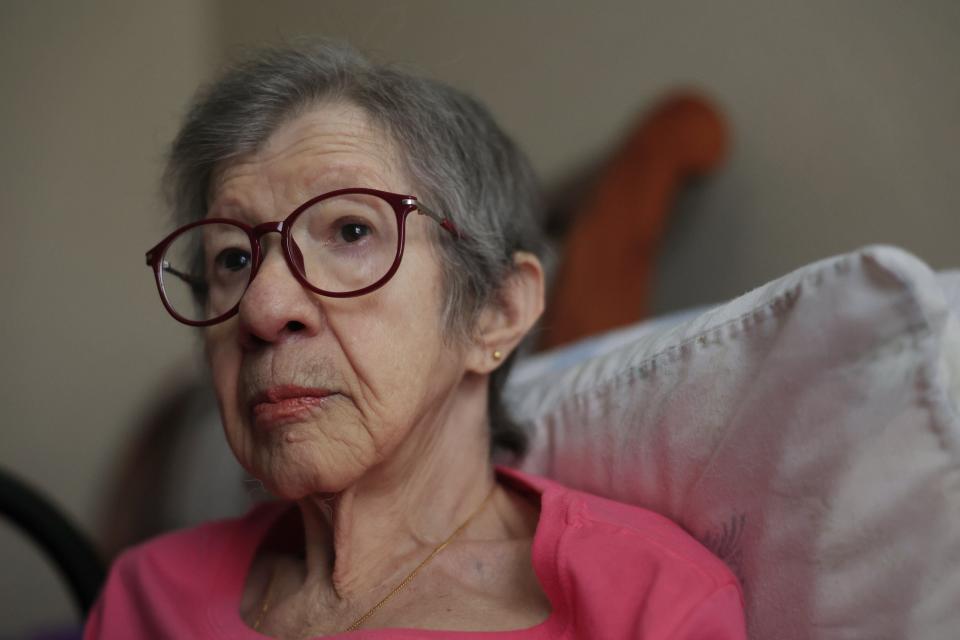Wrong side of a language barrier? Free online support launched for Hispanic caregivers

Hector De Jesus was a classic candidate for caregiver burnout.
De Jesus, 48, has arthrogryposis, a congenital condition that causes stiff or frozen joints and led to his 2013 retirement and regular pain management. Even so, he is the primary caregiver for his mother, Alba, 81, who has dementia, the gradual loss of cognitive functioning.
He gets help from wife Noeli, 47, but she works full-time, and their 19-year-old daughter, who is a University of North Florida student.
De Jesus makes no complaints: In caring for his mother, he is "honoring" the job she did caring for him, he said.
But when the family moved from Puerto Rico to Jacksonville in 2015 for better health care, they found themselves on the wrong side of a language barrier. De Jesus speaks English relatively well, but his mother primary speaks Spanish so a translator is often needed to handle issues with her care.
Spanish-speaking staff at ElderSource, the Jacksonville-based Area Agency on Aging and the Aging & Disability Resource Center for Northeast Florida, and its contracted support services have bridged the gap.
Having a nurse come to the family's apartment in the World Golf Village area to care for his mother frees time for De Jesus to get physical therapy and meet other needs. He also is pleased about a new partnership between ElderSource and Trualta that is providing free online caregiver training and support — in Spanish.
"It's going to be a great tool," he said. "They're good people."
Language barrier often a health care issue
In 2020 almost 42 million Americans provided unpaid care to an adult over the age of 50; 89% of them were caring for a relative or other loved one, according to Caregiver Statistics: A Data Portrait of Family Caregiving in 2023, published on the A Place for Mom website.
About 17% identify as Hispanic. The average age of Hispanic caregivers is 43, younger than any other U.S. demographic, and most live with a spouse or partner and are also likely to care for a child younger than 18, according to the report.
Care for the caregiver: Outside resources, support groups 'essential' for survival
Florida is home to 2.7 million family caregivers according to an AARP report. Statistics on how many of them are Spanish-speaking were not available. But 6% of the population in ElderSource's seven-county service area are Hispanic adults 60 and older. In Duval County, 11% of the county population is Hispanic, according to ElderSource.
According to the Family Caregiver Alliance, Hispanic caregivers have the highest reported prevalence of caregiving among all ethnicities.
The language barrier is often an issue in health care: Nearly 6 in 10 Hispanic adults reported difficulty communicating with a health care provider because of a language or cultural barrier, according to a 2018 study conducted by the Associated Press-NORC Center for Public Affairs Research.
Trualta released its Spanish caregiver education content in July, hoping to reach more families and be more inclusive. All its content was translated into Spanish and updated "to ensure that it was culturally relevant," according to the company. Under the ElderSource partnership, the new Spanish content and all its English content is free.

"Our goal is to empower family caregivers with skills and confidence so that they can provide the best care to their loved ones," said Jonathan Davis, Trualta CEO. "We hope to help them reduce stress and avoid burnout and enable their loved ones to live at home for longer."
The training features short lessons on caregiving topics including medication management, fall prevention, toileting and bathing, as well as self-care, all in Spanish. Users also have access to a chatroom feature, where they can interact with other caregivers.
"The growing preference among older adults is to age in their own homes and it's an amazing feeling to know that we are helping them to do so," he said.
Trualta and ElderSource working to expand inclusivity
Trualta's online platform is currently available in 32 states, often in partnership with local Area Agencies on Aging. The company looked to Jacksonville to add to its 12,000 platform users because it has "a vibrant community of older adults. We’ve known that ElderSource is extremely innovative," according to Trualta.
The ElderSource partnership is funded by a grant from the Humana Foundation, according to CEO Linda Levin.
'Fabulous': Jacksonville’s ElderSource launches online caregiver support group
"Caregiver support is one of the greatest needs in our community as people age," she said. "We know that caregivers are often the ones who make the initial call to our Helpline, looking for help to navigate care for their loved one and seeking resources to help with their caregiving responsibilities."
The Trualta platform "could be an asset to clients," she said. "Any means we have to give caregivers a break or access information and support is really a 'win' for them and us because it means we are succeeding in achieving our mission."
ElderSource has in recent years "stepped up" its inclusivity efforts by offering specialized services to the LGBTQ community, persons with disabilities and non-English speaking populations, Levin said.

Initially, when Spanish-speaking clients sought help, they were referred to a bilingual staffer working in another department to provide translation. Later, ElderSource hired a bilingual Care Connector, Stefania Umana, to assist Spanish-speaking clients.
Umana said she has been a translator for her Spanish-speaking parents since she was 6 years old.
"It makes me proud to be able to provide assistance in a caregiver's language of comfort," she said. "The Hispanic community is resilient and will make ends meet despite the language barriers — it is a privilege and rewarding to be able to assist our Hispanic community by removing a significant obstacle. We can give already stressed caregivers another resource to tap into with the hopes that a language barrier would not add to their daily worries."
Many caregivers have told Umana that online platforms, along with calls, virtual meetings and counseling, have improved their caregiving and self-care.
"Using an online platform means that this information is available to them at two in the afternoon or at two in the morning," she said.
bcravey@jacksonville.com, (904) 359-4109
TO LEARN MORE
To sign up for the Spanish-speaking online caregiver support platform, go to eldersource.trualta.com/login. For information about ElderSource's other caregiver programs, which include a virtual support group, a tailored assessment and referral program, a six-week class and an online library, go to myeldersource.org.
Also, ElderSource leads the Caregiver Coalition of Northeast Florida, a group of professionals from a variety of organizations who work together to help connect caregivers to resources. The coalition presents virtual and in-person events on a variety of topics. For information go to caregivercoalition.org.
This article originally appeared on Florida Times-Union: Spanish-speaking caregivers in Jacksonville area get free online help

